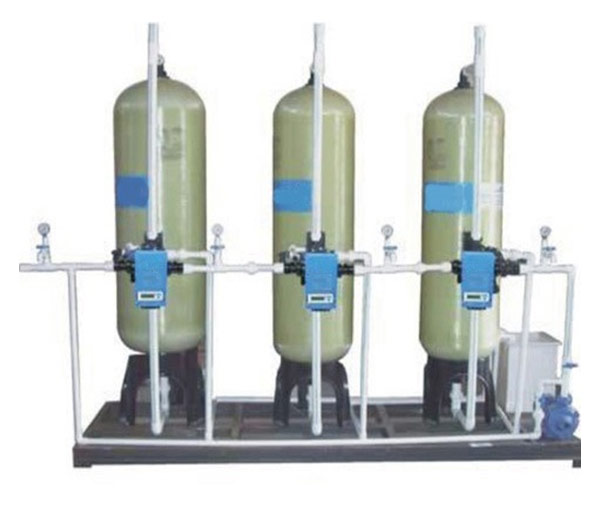


Products--
- Sewage Treatment Plant
- Compact Electrolysis Sewage Treatment Plant
- Effluent Treatment Plant
- Reverse Osmosis Plant
- Filtration
- Ultra Filtration Plant
- Microfiltration
- Nanofiltration Plant
- Demineralisation Plant
- Zero Liquid Discharge Plant
- Softener Plant
- Lamella Clarifier
- Swimming Pool
- Water Harvesting Plants
Services--
Demineralisation Plant
Demineralisation is the process of removing mineral salts from Water by using the ion exchange process. Demineralised Water is Water completely free (or almost) of dissolved minerals. The definition of demineralization is that all the minerals in the water, which consist of positive and negative ions, are removed, leaving pure water (H20) molecules or trace amounts of these ions (Oxford, 2015). The positive ions are defined as cations and may include magnesium, sodium, calcium, iron and copper. The negative ions are referred to as anions and may include chlorides and sulphates. The conductivity of demine water for power generation is typically around 0.055 µS/cm. At this conductivity, it will not conduct energy electrical currents through it.
Fluid Systems Manufacture a Wide range of custom-built Demineralised Water plant [DM Plant] in India for industrial process water applications, with inherent design to conserve water, and save costs. The DM Plants [Demineralisation Plants] are available in different sizes and materials, manually operated or fully Automatic, & ready to install & are available as standard models or custom built versions for specific needs.
The main purpose of using demineralised water by Demineralisation Plant is to prevent the scale formation and oxidation of metals. Therefore they are deaerated and used wherever applicable.

